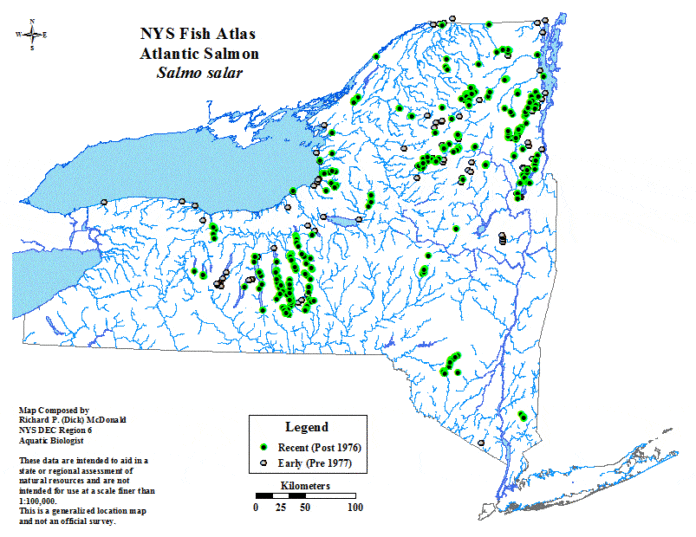The second year of a planned five-year Atlantic salmon rearing project on New York’s Lake Champlain is underway, according to the New York State Department of Environmental Conservation. A cooperative plan with multiple agencies, including the U.S. Fish and Wildlife Service, Trout Unlimited, and at least two colleges, seeks to improve survival of stocked salmon released into the wild.
“Atlantic salmon is a prized native fish and a critical component of the ecosystem of the Saranac River Estuary in Lake Champlain,” DEC commissioner Basil Seggos said in a statement. “With the ongoing support and commitment of our partners, DEC’s innovative pen rearing program is improving the salmon population and enhancing the potential for increased spawning, bolstering future opportunities for New York anglers.”
Six net pens will hold Atlantic salmon smolts at docks at the Plattsburgh Boat Basin on Lake Champlain’s Cumberland Bay for three weeks starting in April. This will improve salmon smolt survival by allowing the young fish to “imprint,” or become familiar with, their stocked water environment. Salmon biologists believe such imprinting is important because stocked salmon return to such locations when they mature for future successful spawning.
According to DEC, two groups of 26,000 Atlantic salmon smolts will be used to compare and evaluate net-pen rearing methods and their effectiveness. One group of young salmon will be placed into net pens in the Saranac River estuary, where they’ll be held for three weeks prior to release as smolts into the wild. Another group of 26,000 young Atlantic salmon will be stocked directly into the Saranac River Estuary when the net pen smolts are released. This will allow experts to compare the two groups for survival and maturing of salmon to verifying if pen imprinting is viable for the Lake Champlain fishery.
The Dwight D. Eisenhower National Fish Hatchery is providing Sebago strain of landlocked Atlantic salmon smolts and fish food for the project. DEC is handling smolt transportation and net pens. Volunteers from TU and college students will monitor fish during feeding and in their release.


